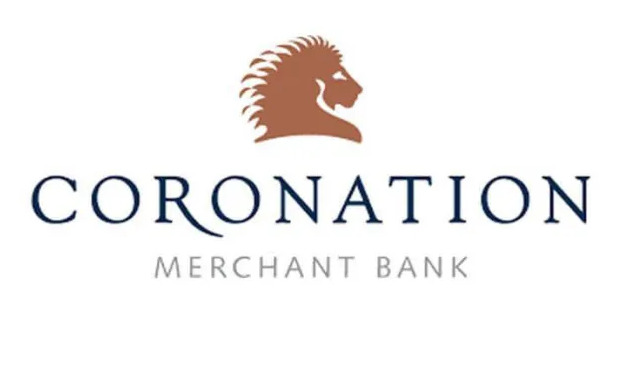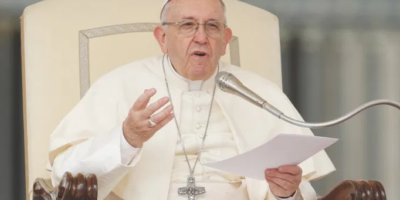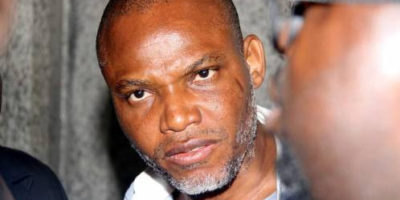Report: FG’s Domestic Borrowing To Exceed N2.6trn In 2022

- NBS Understates Economy by 25%, Says PwC Economist
The Coronation Merchant Bank (CMB) has projected that the federal government’s domestic borrowings in 2022 would exceed N2.6 trillion, while estimating that inflation and GDP growth rates would be 13.88 per cent and 2.6 per cent respectively this year.
The CMB added that the country might experience weak portfolio investment inflows due to negative real interest rates as the headline inflation rate remained in double digits.
These predictions were contained in its Economic Review and 2022 Outlook titled “Blend of Optimism and Uncertainty”, which was released yesterday during a virtual CMB 4th edition of its Interactive Session Series themed “Nigeria’s Economic Landscape – a Blend of Optimism and Uncertainty.”
The CMB said:
Given the current elevated oil price, compared with the oil price benchmark in the 2022 budget, there might be room for the FGN to source funds for fuel subsidy from its windfall/savings. Overall, we expect the budget deficit this year to be higher than the current projection and that domestic borrowing could exceed N2.6 trillion. This implies upward pressure on FGN bonds and NTB yields.
For 2022, we expect the impact of positive base effects on the headline inflation rate to wither away by the second quarter of the year. Looking ahead, on the back of specific factors which could result in upward pressure on prices, we have imposed visible fluctuations in the m/m inflation rate using a few assumptions. These include insecurity, modest exchange rate depreciation, hike in electricity prices, electioneering and the possible N10 per litre excise duty imposed on non-alcoholic carbonated and sweetened beverages. We see average inflation for FY 2022 at 13.88 per cent y/y and at 13.91 per cent y/y at end-December 2022.
The report further stated that the steady financial injections/interventions into selected sectors like agriculture by the Central Bank of Nigeria (CBN) have assisted to keep economic activities afloat within these sectors and observed that the
large informal economy is one reason for the misalignment between the growth figures recorded in these sectors and intervention efforts.
We expect some fiscal stimulus on the back of FGN’s capital expenses. Furthermore, we anticipate investment spending in targeted sectors. We are optimistic about the implementation of the PIA, which should improve revenue collection and could boost investor appetite.
Looking ahead, overall pre-election expenditure towards the 2023 general elections should also contribute to the growth drive. For 2022, we expect a GDP growth of 2.6 per cent y/y.
Delivering a welcome remarks yesterday during the unveiling of the report, the Managing Director/Chief Executive Officer of CMB, Mr. Banjo Adegbohungbe, stated that
there are a number of factors, both positive and negative that are expected to influence the macroeconomic landscape in 2022. The lessons learnt on resilience as Nigeria embarked on a recovery path in 2021 will be critical in shaping the business and macroeconomic environment this year.
The event, which was held virtually, featured expert speakers such as Founder and Chief Consultant of B. Adedipe Associates, Dr. Biodun Adedipe; Advisory Partner/Chief Economist at PwC Nigeria, Dr. Andrew S. Nevin; Chief Economist at Coronation Merchant Bank, Ms. Chinwe Egwim, and Chief Economist at the Development Bank of Nigeria, Professor Joseph Nnanna,.
Egwim, who delivered the macroeconomic presentation, said:
Looking ahead, on the back of specific factors, we expect upward pressure on prices. Overall, consumption patterns are relatively better and are almost mirroring pre-pandemic levels. However, we must note that consumer pockets are still steadily being rebuilt.
However, Nevin expressed optimism for 2022 added that the National Bureau of Stattistics (NBS) underestimated the volume of Nigerian economy by 25 per cent.
He said:
We (Nigeria) have a bigger economy and more economic activities than we think. The official number from NBS is about N20 trillion in the fourth quarter which understates the economy perhaps as much as 25 per cent. We also have a smaller population than estimated, so we are actually richer than we think.
Speaking during the virtual event, Adedipe noted that,
we’ve seen the pattern in the last 10 years of non-oil sectors accounting for between 77 per cent and 82 per cent in terms of contribution to our GDP, while the oil sector has repeatedly accounted for less than 10 per cent. It is now obvious that what drives the economy is the non-oil sector and that is where we will have to pay a lot of attention. Looking at this in the context of where we are, I see an economy that will grow very strongly, and I expect growth to be sustained this year.
In his comment, Nnanna added that
taking a look at the diversification strategy, we need as a country to restructure the economy, moving from the factors of production within and across different sectors towards high productivity so that diversification can be achieved through encouraging private investments, foreign investments, improving infrastructure and so on.

Justin Nwosu is the founder and publisher of Flavision. His core interest is in writing unbiased news about Nigeria in particular and Africa in general. He’s a strong adherent of investigative journalism, with a bent on exposing corruption, abuse of power and societal ills.













